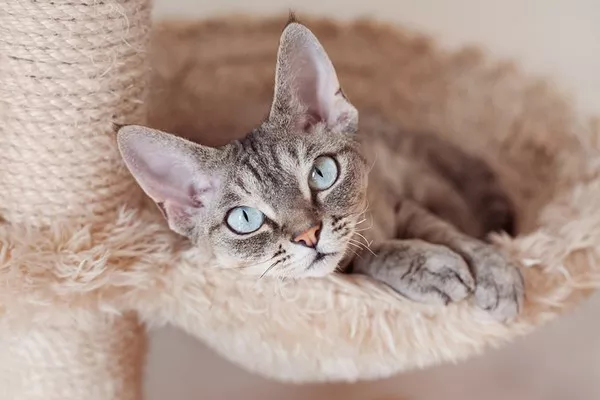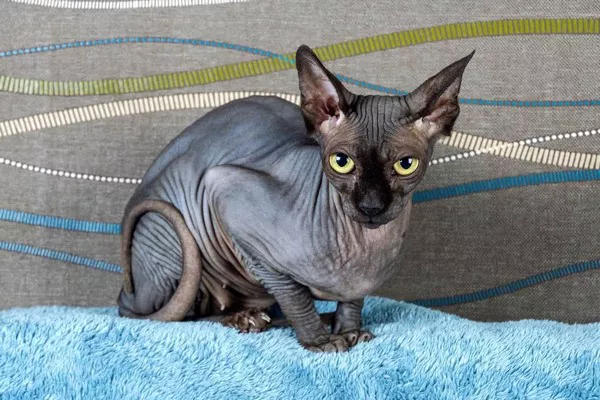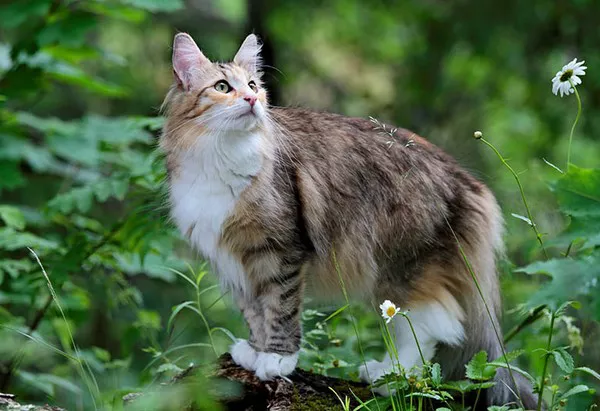Can Cats Have Eggs? Everything You Need To Know
As responsible cat owners, we’re always on the lookout for nutritious and safe food options for our feline companions. Eggs are a staple in many human diets and come packed with essential nutrients. In this comprehensive article, We’re going to dive into Can Cats Eat Eggs. We will explore the potential benefits, address common concerns, highlight nutritional value, present guidelines for incorporation, and provide insights into feline nutrition.
The Nutritional Value of Eggs for Cats:
Eggs are packed with essential nutrients that can be beneficial for cats when incorporated into a balanced diet. Here are the key nutrients found in eggs:
High-Quality Protein: Eggs are an excellent source of high-quality protein, which is crucial for maintaining healthy muscles and supporting various bodily functions in cats. Protein is essential for growth, repair, and overall development.
Amino Acids: Eggs contain all the essential amino acids that cats need for optimal health. These amino acids aid in proper organ function, tissue repair, and the production of enzymes and hormones.
Vitamins: Eggs are rich in vitamins, including vitamin A, vitamin D, vitamin E, and several B vitamins. These vitamins contribute to healthy skin, coat, eyesight, immune function, and overall well-being in cats.
Minerals: Eggs contain minerals such as iron, zinc, selenium, and phosphorus, which are vital for various physiological processes in cats. These minerals support bone health, red blood cell production, and enzyme function.
Potential Benefits of Feeding Eggs to Cats:
Feeding eggs to cats in moderation can provide several health benefits, including:
1. Promoting Muscle Health: The high-quality protein in eggs supports muscle maintenance, repair, and growth, helping cats maintain a healthy and strong physique.
2. Enhancing Skin and Coat: The vitamins and fatty acids present in eggs contribute to healthy skin and a lustrous coat in cats. These nutrients can help reduce dryness, itchiness, and promote a glossy coat.
3. Supporting Eye Health: Eggs contain vitamin A, which plays a crucial role in maintaining good eyesight and overall eye health in cats.
Eggs With so many benefits and nutritional value for cats, can kittens eat eggs? What should I pay attention to?
Can Kittens Eat Eggs?
Yes, kittens can eat eggs. Eggs are a good source of protein and other essential nutrients for kittens. However, it’s important to ensure that the eggs are cooked thoroughly before feeding them to kittens. Raw eggs may contain bacteria like Salmonella, which can be harmful to kittens and humans alike. So, it’s best to avoid feeding raw eggs to kittens. Cooked eggs, such as scrambled or boiled eggs, can be given in moderation as part of a balanced diet for kittens. So can cats eat raw eggs?
Can Cats Eat Raw Eggs?
While cats can technically eat raw eggs, it is generally not recommended. Raw eggs have the potential to contain bacteria such as salmonella or E.coli, which can pose a risk to both cats and humans. Additionally, consuming raw eggs can interfere with the absorption of biotin, a B-vitamin that is important for a cat’s skin and coat health.
Cooking eggs thoroughly can help eliminate any potential bacteria and make them safer for consumption. If you want to include eggs in your cat’s diet, it is best to cook them before feeding. Scrambled eggs or boiled eggs are good options.
Can Cats Eat Scrambled Eggs?
Yes, cats can eat scrambled eggs. Scrambled eggs are a popular and safe way to serve eggs to cats. However, it’s still important to keep a few things in mind:
1. Cooked eggs: Cats should only consume fully cooked eggs. Raw or undercooked eggs may contain bacteria like salmonella, which can be harmful to cats.
2. Plain preparation: When making scrambled eggs for your cat, avoid adding any seasonings, salt, butter, or oil. These additions can be unnecessary and potentially harmful to your cat’s health.
3. Portion size: Eggs should be given to cats as an occasional treat rather than a primary food source. A small portion of scrambled eggs once in a while can be a nice addition to their regular diet but should not replace their balanced cat food.
4. Allergies or sensitivities: Like humans, cats can have allergies or sensitivities to certain foods, including eggs. If you’re introducing scrambled eggs to your cat’s diet for the first time, monitor them closely for any signs of digestive upset or allergic reactions.
Can Cats Eat Boiled Eggs?
Yes, cats can eat boiled eggs in moderation. Eggs are a good source of protein appropriately and in moderation. They provide high-quality protein, essential amino acids, vitamins, and minerals that contribute to overall health and well-being. However, it is crucial to cook the eggs thoroughly, practice portion control, be aware of any potential allergies or sensitivities, and ensure a balanced diet for your feline companion. By considering these factors and consulting with a veterinarian, you can safely introduce eggs as a nutritious treat for your cat.
See Also: Can Burmese Cats Eat Boiled Eggs?
Can cats eat eggshells?
Cats can technically eat eggshells, but it’s not typically recommended as a regular part of their diet. Eggshells are mainly composed of calcium carbonate, which can provide some calcium to cats when consumed in small amounts. However, cats have different dietary requirements than humans and other animals. They require a balanced diet that includes high-quality cat food specifically formulated for their nutritional needs.
If you’re considering adding eggshells to your cat’s diet, it’s important to do so cautiously and in moderation. The shells should be thoroughly cleaned, ground into a fine powder, and then mixed with your cat’s food. Keep in mind that too much calcium can lead to imbalances in a cat’s diet, potentially causing health issues.
It’s always best to consult with a veterinarian before making any significant changes or additions to your cat’s diet to ensure they receive the appropriate nutrition for their well-being.
Precautions and Considerations of Feeding Eggs to Cats:
While eggs can offer numerous benefits, it is important to consider a few precautions when feeding them to cats:
1. Cooked Eggs: It is essential to always feed cats fully cooked eggs to minimize the risk of bacterial contamination, especially from salmonella. Raw or undercooked eggs may contain harmful bacteria that can lead to digestive upset or illness.
2. Portion Control: Eggs should be given to cats as a treat or occasional addition to their regular diet. While they are nutritious, they should not make up a significant portion of a cat’s daily caloric intake. Moderation is key.
3. Allergies or Sensitivities: Like humans, cats can have food allergies or sensitivities. If you introduce eggs into your cat’s diet for the first time, monitor their response for any signs of allergic reactions, such as vomiting, diarrhea, or skin irritations. If any adverse reactions occur, consult with a veterinarian.
See Also: Diarrhea and Vomiting in Kittens: Diet & Care Recommendations
4. Dietary Balance: It is important to ensure that eggs are just one component of a balanced and complete feline diet. Cats have specific nutritional requirements, and eggs alone cannot meet all their dietary needs. Consult with a veterinarian or a qualified pet nutritionist to determine the appropriate amount and frequency of egg consumption for your cat.
Addressing Common Concerns and Myths:
Raw Eggs and Biotin Deficiency: Raw egg whites contain an enzyme called avidin, which can interfere with biotin absorption. However, when fed in moderation, raw eggs are unlikely to cause biotin deficiency in cats.
Food Allergies: While some cats may develop allergies or sensitivities to specific proteins in eggs, such cases are relatively rare.
Salmonella Contamination: Proper handling, storage, and thorough cooking of eggs significantly reduce the risk of salmonella contamination, ensuring cat safety.
Conclusion:
Eggs can be a beneficial addition to a cat’s diet when incorporated appropriately and in moderation. They provide high-quality protein, essential amino acids, vitamins, and minerals that contribute to overall health and well-being. However, it is crucial to cook the eggs thoroughly, practice portion control, be aware of any potential allergies or sensitivities, and ensure a balanced diet for your feline companion. By considering these factors and consulting with a veterinarian, you can safely introduce eggs as a nutritious treat for your cat.



























